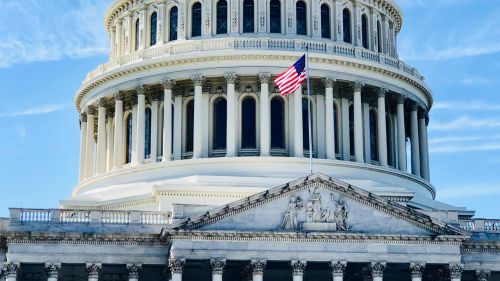NAFTA Pronouncements and Reality

To pass legislation and end any uncertainty swirling around the trade pact, NAFTA's new labor chapter may need further tweaking.
Following the announcement that the United States and Mexico reached a preliminary agreement on the renegotiation of the North American Free Trade Agreement (NAFTA), US Trade Representative Robert Lighthizer signaled that he would notify Congress of the intent to sign the agreement shortly, after which the administration would be able to ink the agreement in 90 days time.
For this newly updated agreement to be signed into law, however, assumes several major hurdles are cleared. The priority for the moment is determining the status of Canada’s involvement, and confirming if it is permissible for the administration to submit notice of intent to sign a bilateral agreement for a trilateral trade pact.
Yet perhaps the most lasting concern is determining if the newfangled agreement is palatable to the US Congress, and if it will garner the requisite Democratic support to ensure its passage. A particularly longstanding issue for critics of NAFTA is the lax enforcement of Mexican labor laws; resolving this is a crucial pillar for gaining Democratic support for a renegotiated agreement. Ranking Democratic lawmakers have insisted that few colleagues would back a retooled NAFTA without significant reforms to the agreement’s labor provisions.
Why Democrats, though? Traditionally, Republican legislators were far more likely to support trade deals. But with party allegiances shifting on trade, tepid reaction from the US Chamber of Commerce (usually a barometer of pro-trade Republican views), and the potential of a Democratic House in 2019 (when the vote on the new NAFTA would occur), the administration will likely need to reach across the aisle.
But what changes to the labor provisions would gain Democratic support? As a strong first step, the amended deal will purportedly institute a full labor chapter within the text of the agreement (per the US-Mexico agreement fact sheet), doing away with the labor side agreement developed during the original passage of NAFTA.
This new chapter will include an annex that supports rights for Mexican workers to collectively bargain and form independent unions. It also institutes labor value content rules promoted by labor unions that require 40-45 percent of auto content to be made by workers earning at least $16 per hour (for comparison, the current average hourly wage level of Mexican auto industry workers is just over $3 per hour). These updates are meant to incentivize greater labor regulation in Mexico and protection for auto assembly and auto parts workers in the United States.
But what remains unclear is how the updated labor regulations are to be enforced in the new NAFTA. In free trade pacts passed and updated after the “May 10th” agreement of 2007, restitution for a violating party’s labor transgressions is enforced using the dispute settlement procedure.
Yet this runs into two potential roadblocks. First, the initial reports of the renegotiated agreement demonstrate an effort to weaken the dispute settlement procedures in NAFTA, effectively restricting the manner in which labor provisions would be protected.
But even if the dispute settlement mechanism endures, organized labor is highly skeptical of its efficacy in protecting labor provisions. In a recent, nine-year dispute with Guatemala (through the Dominican Republic-Central America Free Trade Agreement), the arbitration panel ruled against the US position that Guatemala had not adequately upheld its labor standards. As a result of this finding—the only high-profile labor dispute within a free trade agreement – labor unions and Democrats remain unconvinced that workers’ rights are protected by standard labor chapter provisions.
Although legislators on both sides of the aisle would likely take a deal over nothing, threading the needle in Congress, and potentially a less friendly one this coming year, will be more difficult than the administration may have anticipated. To pass the legislation and end the uncertainty swirling around the trade pact, NAFTA’s new labor chapter may need further tweaking.

